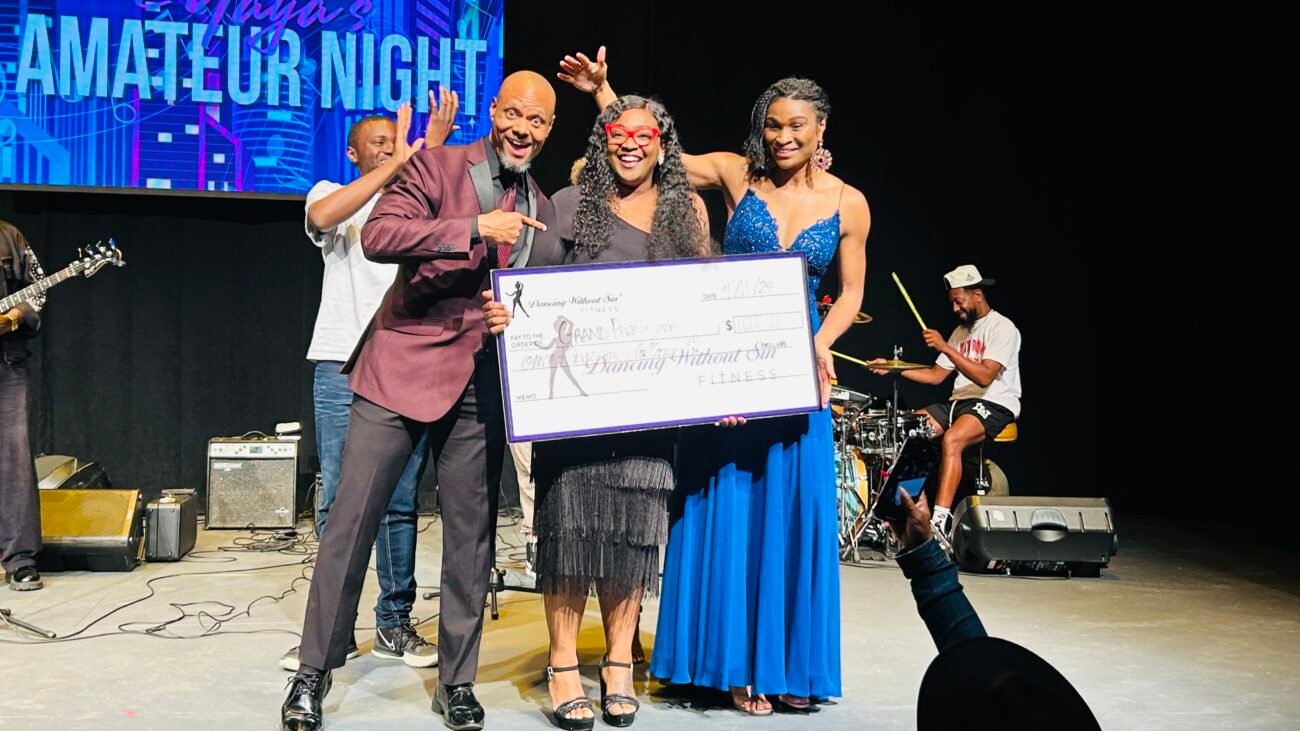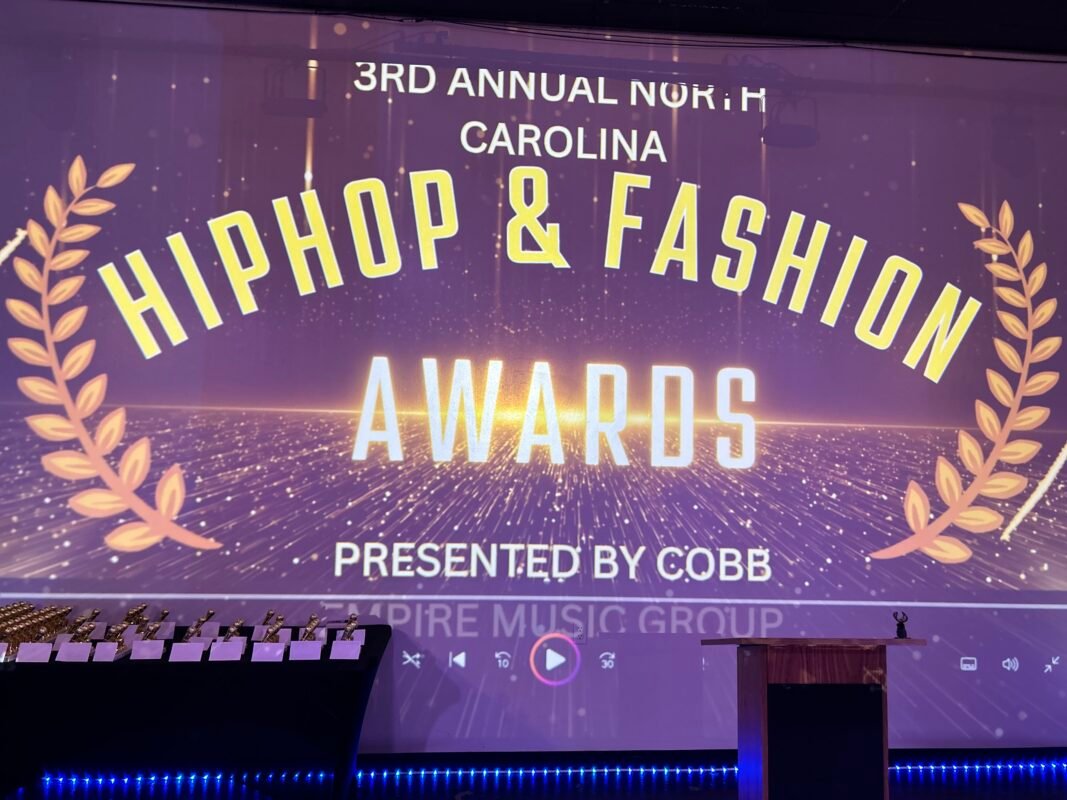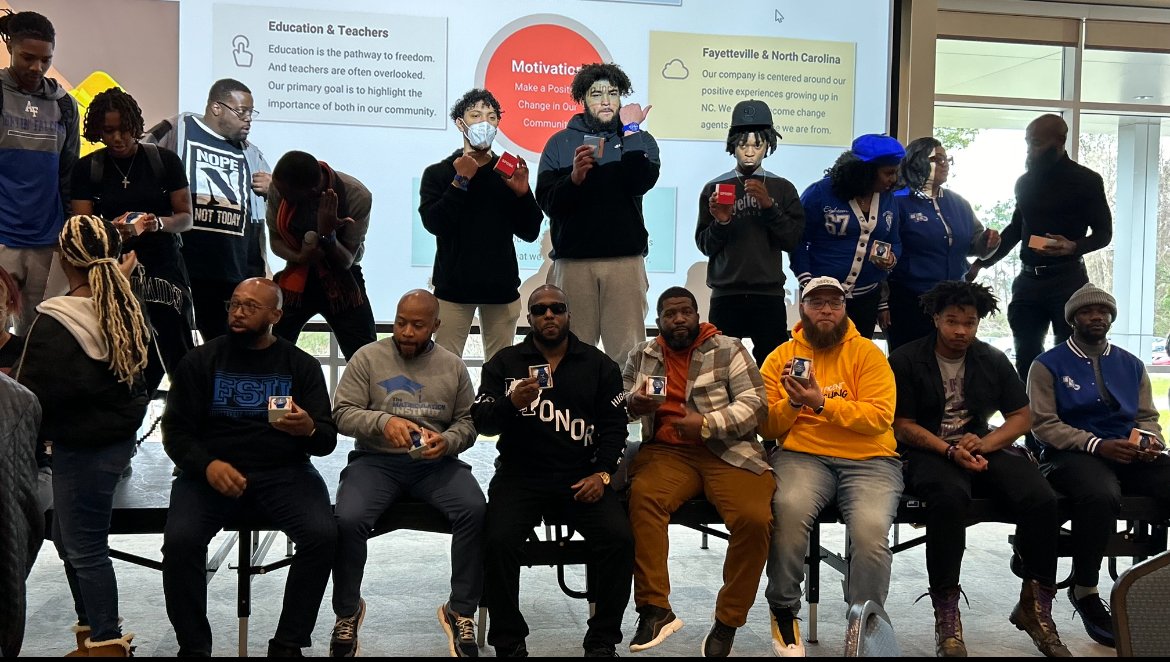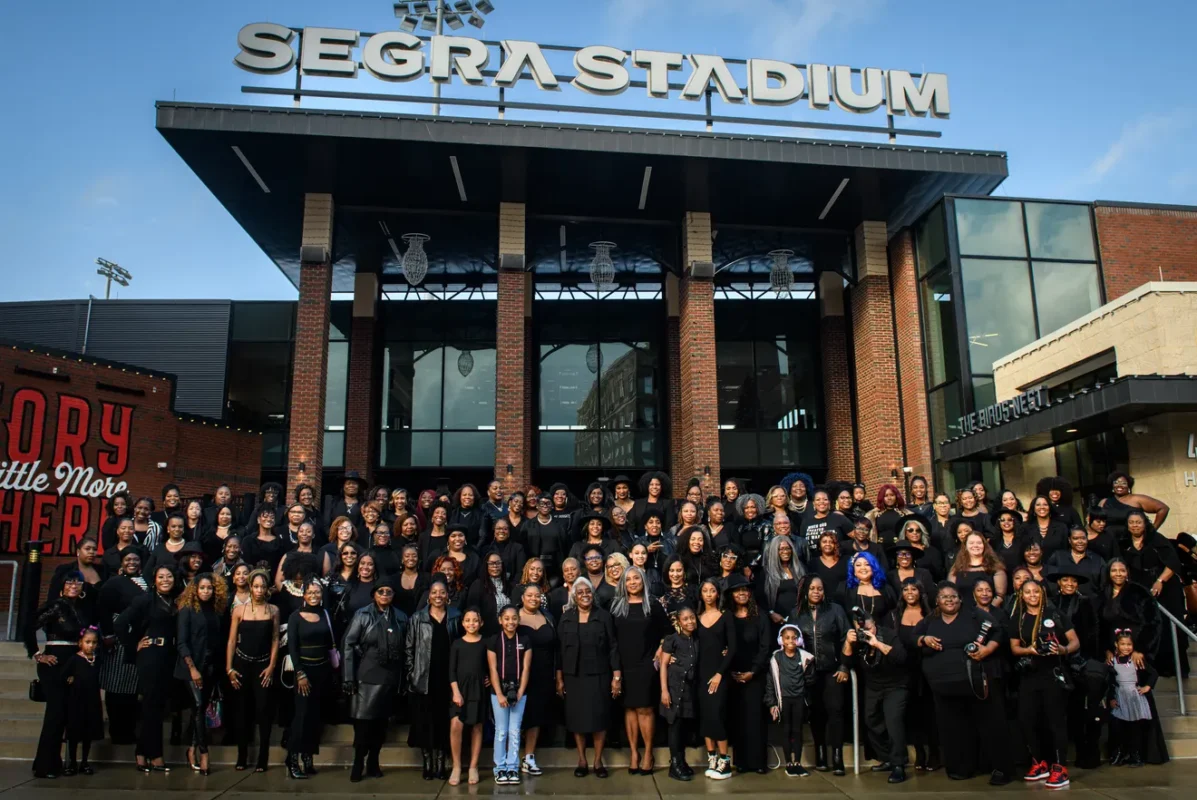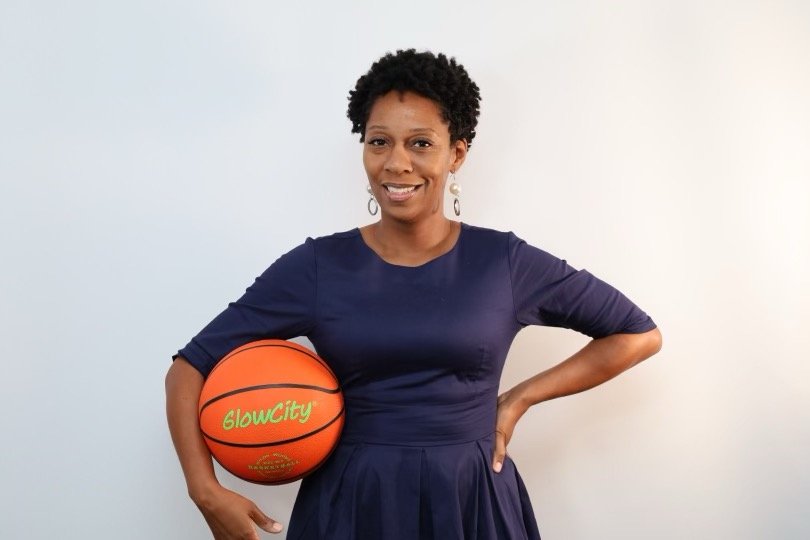“This is my hair, and I’m happy with it. I feel the most confident I’ve ever felt in my entire life, not just at work, but throughout my life,” Akilah Davis, Race and Culture Reporter at ABC 11 WTVD News, said she felt comfortable in her new look.
Davis revealed her new locations while covering her story for 2023’s Juneteenth to celebrate her liberation. The Chicago native, who wore wigs throughout her professional journey, decided to embrace her natural hair. She believed that straight hair was more professional and accepting of society. Davis’s decision not to conform to society’s texturism rules, through her story, received much praise from viewers and her colleagues, and she’s considering doing another Juneteenth story.
“I have had viewers e-mail me saying things like, You hold your head up a little higher on TV now. You look different! You look more confident! ……. And that means something,” Davis said.

Davis was one of the panel guests at “Black HERstory: A Panel Discussion on Colorism, Texturism, and Featurism.” Fayetteville’s North Regional Public Library hosted the event on April 27th. Toria Council, a 17-year-old Girl Scouts Troop 1458 member at Lewis Chapel Missionary Baptist Church, created the forum as part of her Gold Award project.
Other distinguished panel guests were Zeida Gaston (Narrator of Bio-Documentary, A Black Girl’s Story: The Truth Behind the Smile), Toni Morris (Licensed Clinical Mental Health Counselor), Dr. Francena Turner (African American History Adjunct Lecturer at Fayetteville State University), and Amber Johnson (President of Gray’s Creek High School Diversity Club).
According to the Western world’s beauty standards, hair, skin, and physical features play a role in an individual’s perceived beauty. This standard of perceived beauty often excludes black women, particularly those with darker skin, tighter curls, and Afrocentric features, due to forms of aesthetic bias such as colorism, textures, and featurism.
The EE Smith High School junior’s vision for creating this powerful forum was to bring awareness of these stigmas that have been daunting to the black community for centuries, creating a much-needed space to discuss these areas that appear to have a lot of emphasis on defining beauty, especially in mainstream media.
Davis stated, “You live this life, and sometimes it’s difficult to understand. “How did we get here?” and “Where did this come from?”
Davis’ question came in perfect timing, as the writer watched Amanda Seales share an interesting comment on the “Club Shay Shay” podcast about colorism. Seales, victimized by colorism for not being black enough, asserts that the black community oversimplifies and feeds into the ideology of white supremacists rather than asking, “How can we starve it with love and love each other?”
During slavery, enslaved blacks were part of a reality that taught them that blacks were inferior. This inferiority complex has been passed down through generations, promoting Western world standards as superior beauty. As a result, African Americans are at war against their race. Colorism, texturism, and featurism hierarchy were embedded in the black race to loathe and spew words of hate on its identity. Generations perpetuate this type of hate, leading to a never-ending cycle of insecurities, self-hatred, cruel jokes, and internal rejection.
Dr. Turner, passionate about studying black women, is a fan of Fannie Lou Hammer. While pursuing social justice, Turner researched the treatment of American voting and women’s rights activists, community organizers, and Civil Rights Movement leaders. Turner asserts that society’s historical determination of what constitutes a presentable way for black women to present themselves significantly influenced Hammer’s treatment.
“We collect black women’s stories from history, and they tend to look alike if we’re being honest,” she stated. According to Turner, the stories shed light on a historical pattern of blacks experiencing rejection from elite institutions and organizations that has much to do with colorism, texturism, and featurism.
Turner’s commentary is a reminder of divisiveness within the black race. For example, the early to mid-20th century saw the development of the paper bag test in New Orleans. Major US cities with a high-density African American population commonly use the brown paper bag as a test for party admission. Parties denied entry to people with darker pigmentation than the brown paper bag. According to the New York Daily article “99 Problems: Shades of Belonging,” a person’s complexion often determines access to social events, churches, jobs, historically black sororities and fraternities, nightclubs, and schools.
Modern society, particularly in hip-hop culture, actively promotes European beauty standards through lyrics, videos, and lifestyle.
Gaston, who experienced colorism because of her dark complexion, is a big promoter of self-love and acceptance. She shaved her hair to express her freedom and define her boldness. Gaston encourages the youth to embrace their identity and not let others’ opinions define them.
Gaston and Davis, for instance, took the initiative to break the mold through therapy, which led to their healing journey.
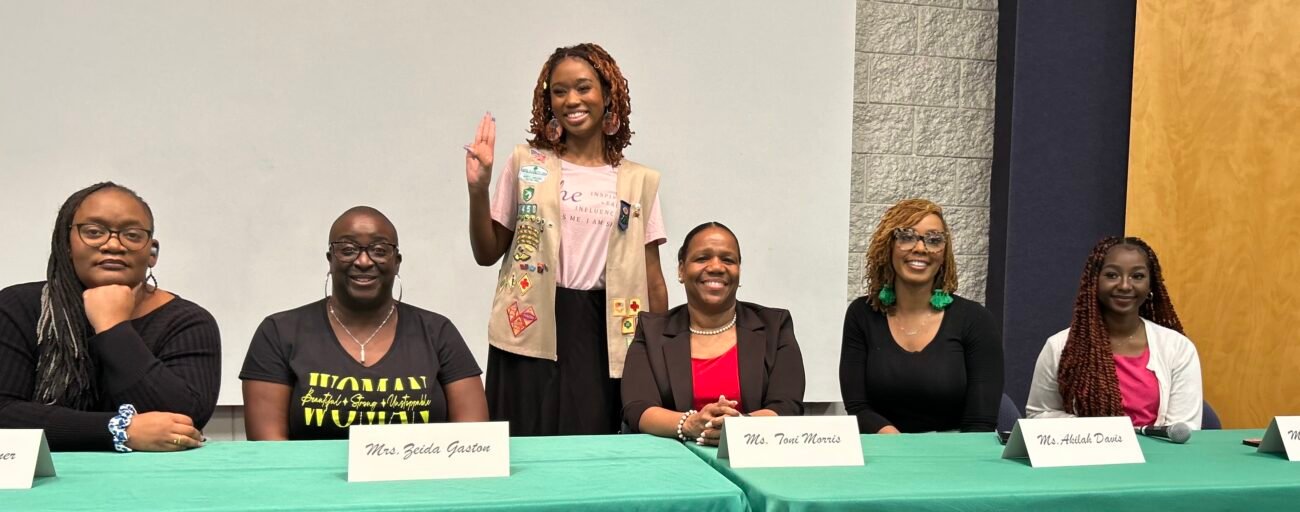
Davis mentioned her job, which puts her in the public eye while reporting news, and said she hopes black girls and women see her by training their eyes to see another form of beauty they’re not used to regularly seeing.
Gaston also shared that therapy helped her navigate through her scars. “I know who I am. I can tell you my story without crying. I live in the victory I overcame,” she stated.
Morris states that the black community needs to do a better job of shifting the paradigm of seeking therapy for their innermost thoughts and navigating ways to process those thoughts to help with their healing journey into self-acceptance.
“We have a lot of people holding on to a lot of words and feelings. They are going through their lives, which is causing some problems, and that’s why we continue to fight for those who don’t feel good enough because of their color, texture, hair, body shape, or body image. We continue to have these issues because we aren’t talking about them,” Morris added.

After Gaston healed, she went back to help her mother recover from the innermost hurt and trauma she never healed from due to her dark complexity, which leaked out of her heart when judging people of lighter complexions for doing this and that because of their skin.
Given the widespread promotion of colorism, texture, and feminism in mainstream media, society may need to do more to undo centuries of damage control. For instance, panel guest and fellow troopmate Johnson started her diversity club at Gray’s Creek High School. The 17-year-old, interested in going to school for psychology, initiated the club to promote inclusion and acceptance for students from diverse backgrounds and cultures.
The form envisioned by Council was beneficial in promoting the continuation of further addressing the ugly truth of the oppressive biases in the black community through opening dialogue, hard conversations straight on, and spreading awareness on colorism, textures, and featurism. Phases Two and Three are in the works for Council’s Gold Award project. Phase two will focus on a workshop on this topic for the youth, and in Phase three, the Council plans to write a book on these topics to help contribute to breaking the colorism, featurism, and texturism curse.




